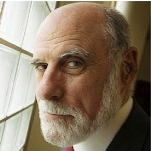Would you pay good money for accurate predictions about important events, such as election results or military campaigns? Not if the U.S. Commodity Futures Trading Commission (CFTC) has its way. It recently took enforcement action against overseas prediction markets run by InTrade and TEN. The alleged offense? Allowing Americans to trade on claims about future events.
The blunt version: If you want to put your money where your mouth is, the CFTC wants to shut you up.
A prediction market allows its participants to buy and sell claims payable upon the occurrence of some future event, such as an election or Supreme Court opinion. Because they align incentives with accuracy and tap the wisdom of crowds, prediction markets offer useful information about future events. InTrade, for instance, accurately called the recent U.S. presidential vote in all but one state.
As far as the CFTC is concerned, people buying and selling claims about political futures deserve the same treatment as people buying and selling claims about pork futures: Heavy regulations, enforcement actions, and bans. Co-authors Josh Blackman, Miriam A. Cherry, and I described in this recent op-ed why the CFTC’s animosity to prediction markets threatens the First Amendment.
The CFTC has already managed to scare would-be entrepreneurs away from trying to run real-money prediction markets in the U.S. Now it threatens overseas markets. With luck, the Internet will render the CFTC’s censorship futile, saving the marketplace in ideas from the politics of ignorance.
Why take chances, though? I suggest two policies to protect prediction markets and the honest talk they host. First, the CFTC should implement the policies described in the jointly authored Comment on CFTC Concept Release on the Appropriate Regulatory Treatment of Event Contracts, July 6, 2008. (Aside to CFTC: Your web-based copy appears to have disappeared. Ask me for a copy.)
Second, real-money public prediction markets should make clear that they fall outside the CFTC’s jurisdiction by deploying notices, setting up independent contractor relations with traders, and dealing in negotiable conditional notes. For details, see these papers starting with this one.
[Aside to Jerry and Adam: per my promise.]
[Crossposted at Technology Liberation Front, and Agoraphilia.]


 The Technology Liberation Front is the tech policy blog dedicated to keeping politicians' hands off the 'net and everything else related to technology.
The Technology Liberation Front is the tech policy blog dedicated to keeping politicians' hands off the 'net and everything else related to technology.